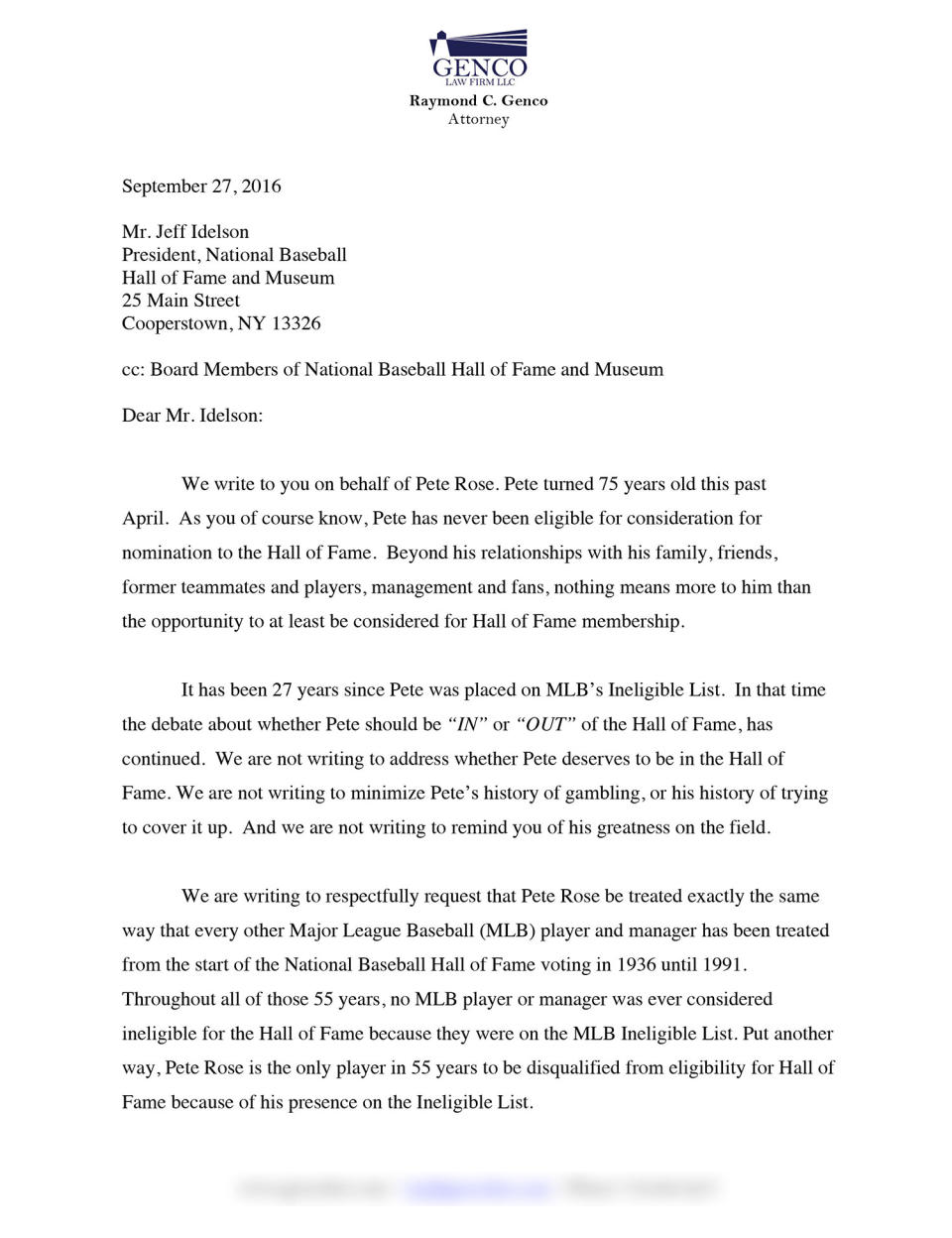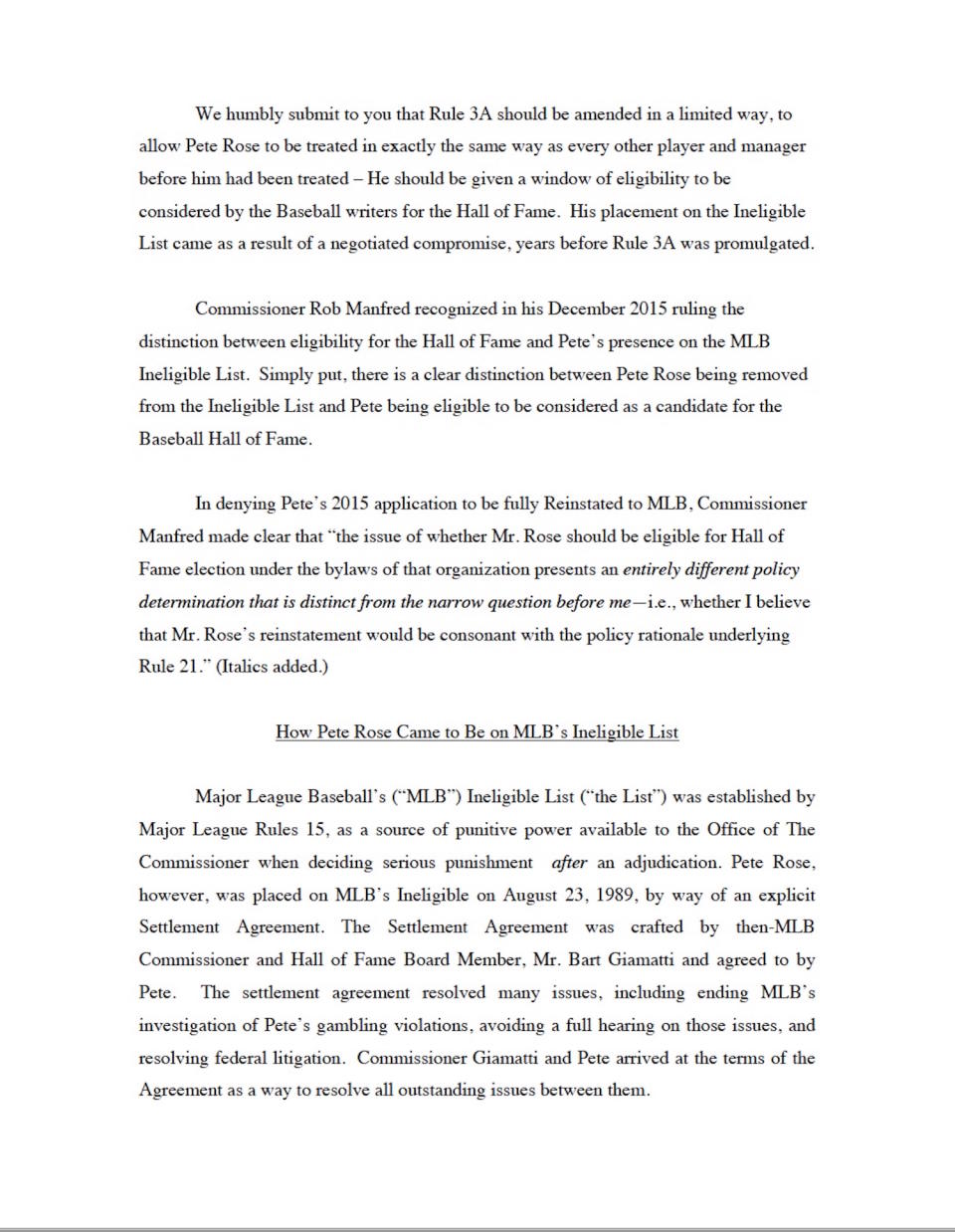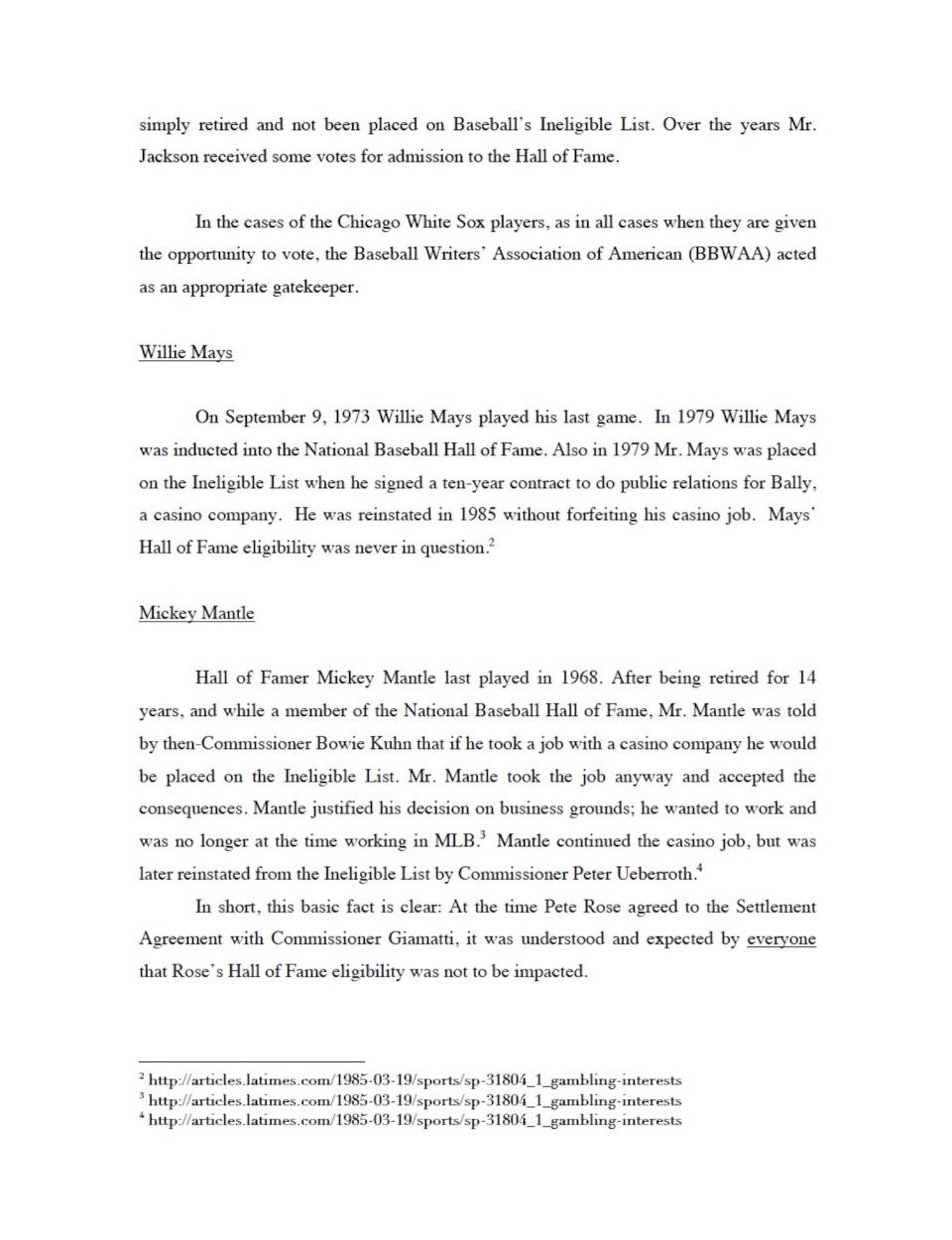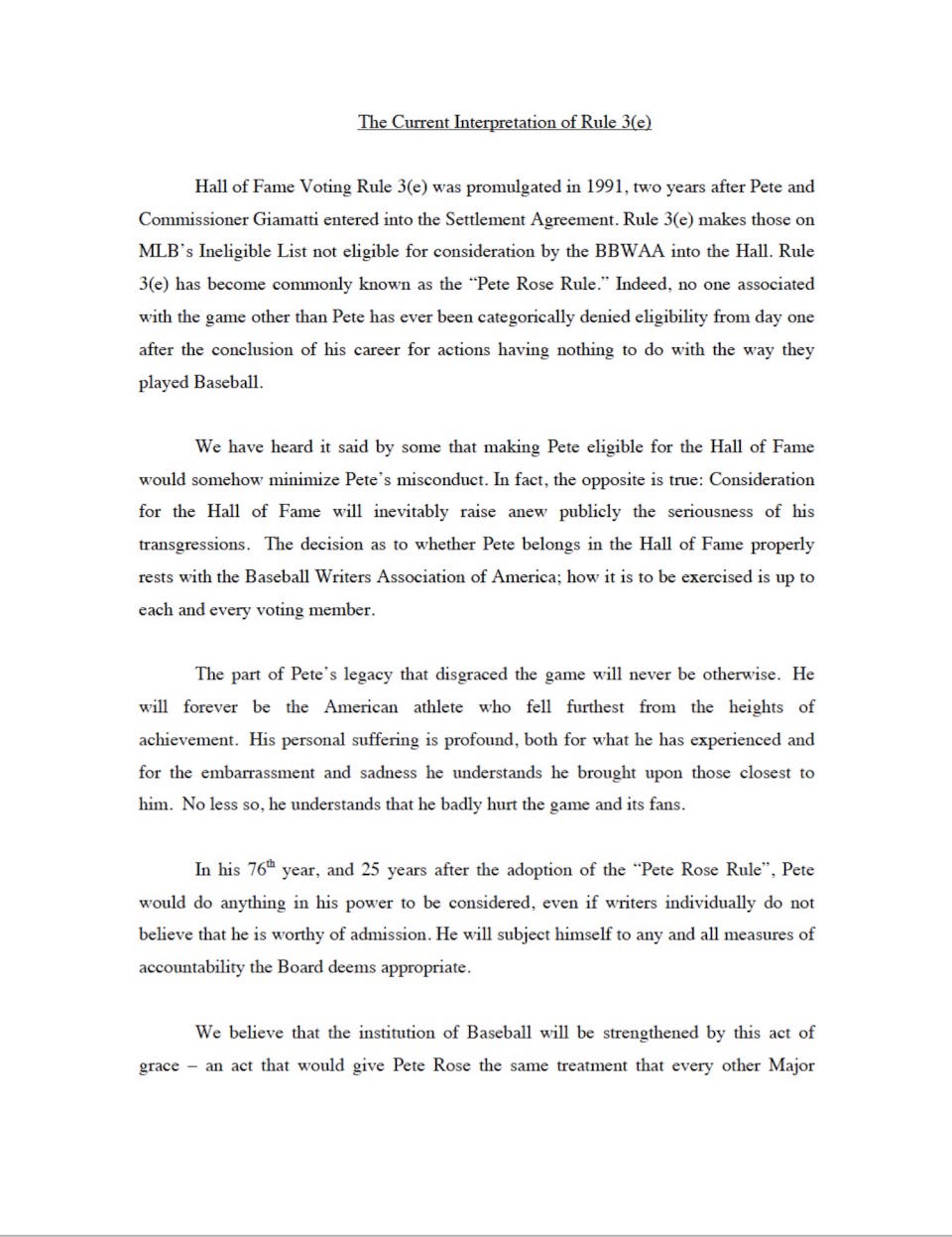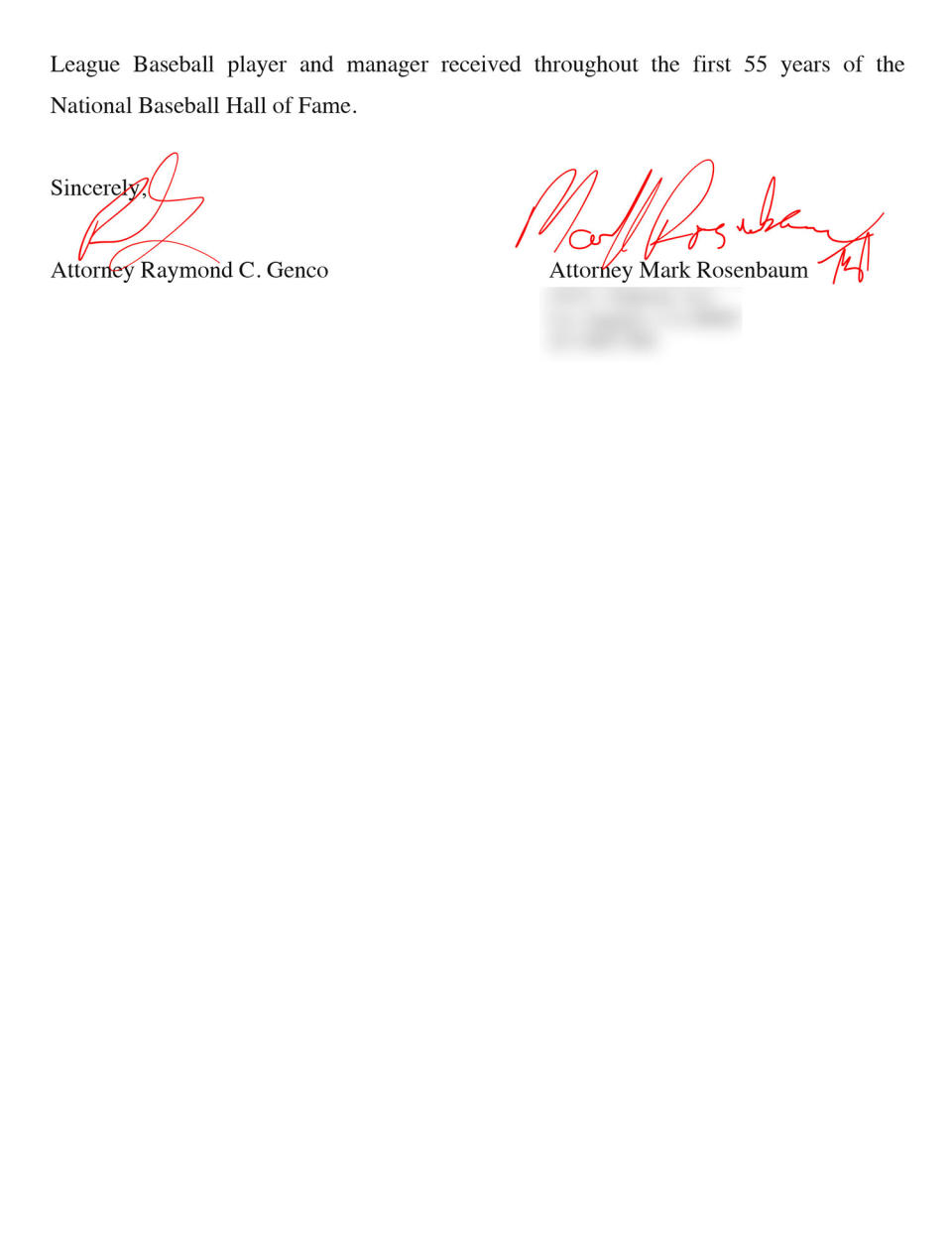Pete Rose petitions Hall of Fame for inclusion on ballots in lengthy letter
Disgraced hit king Pete Rose has asked National Baseball Hall of Fame officials to reconsider the bylaw that blocks his candidacy for enshrinement, petitioning Hall president Jeff Idelson in a seven-page letter that argues for his inclusion on future ballots.
The letter, obtained by Yahoo Sports, contends the terms of Rose’s lifetime ban for gambling – drawn by then-commissioner Bart Giamatti – intentionally excluded language that would have barred Rose from Cooperstown and that, 27 years later, Rose has been unjustly kept from consideration.
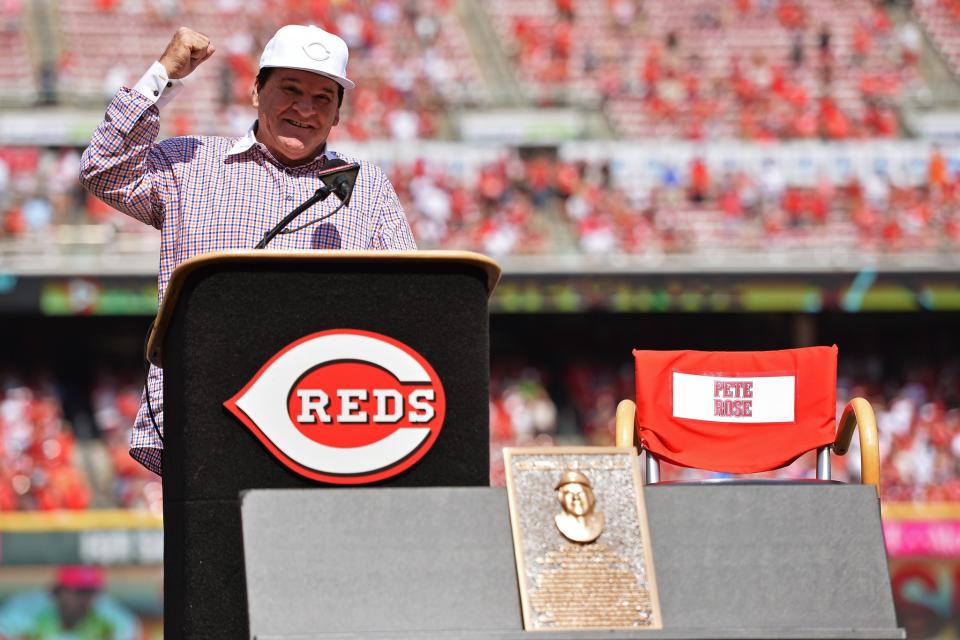
Nine months after commissioner Rob Manfred denied his bid for reinstatement in Major League Baseball, Rose uses conclusions from Manfred’s ruling – specifically that Rose’s place on baseball’s Ineligible List was separate from his Hall of Fame eligibility – to build a case for his inclusion on a ballot.
Written and signed by Rose’s longtime attorney, Raymond Genco, and former ACLU lawyer Mark Rosenbaum, the letter is the first step in Rose’s latest attempt at enshrinement after his ban for betting on baseball. Whether it is a precursor to a potential lawsuit is unclear and seems unlikely, though at 75 years old, Rose feels a sense of urgency and believes the Baseball Writers Association of America is his best chance at joining the Hall.
According to the letter, “At the time Pete agreed to the settlement, the consequences of being placed on the ineligible list were clear and specific – and did not include a Hall of Fame prohibition.”
Rose accepted terms of the agreement on Aug. 24, 1989. Giamatti died eight days later. In February 1991, approximately a year before Rose would have appeared on the ballot, the Hall of Fame established Rule 3(e), which barred permanently ineligible players from enshrinement. Rose has not appeared on a ballot put before the BBWAA or subsequent committees (the Expansion Era committee, for one) intended to further consider the candidacies of players who fell short on BBWAA ballots.
Attorneys Genco and Rosenbaum contend, “… No one associated with the game other than Pete has ever been categorically denied eligibility from day one after the conclusion of his career for actions having nothing to do with the way they played baseball.”
They note the case of “Shoeless” Joe Jackson, who was banned for life in 1921 and appeared on subsequent Hall of Fame ballots.
In Manfred’s decision in December to uphold Rose’s lifetime ban, he stated, “It is not part of my authority of responsibility here to make any determination concerning Mr. Rose’s eligibility as a candidate for election to the National Baseball Hall of Fame. In fact, in my view, the considerations that should drive a decision on whether an individual should be allowed to work in Baseball are not the same as those that should drive a decision on Hall of Fame eligibility. … Thus, any debate over Mr. Rose’s eligibility for the Hall of Fame is one that must take place in a different forum.”
Idelson, the Hall president, responded in a statement, “Pete Rose remains ineligible for Hall of Fame consideration, based on the Hall of Fame’s bylaws, which preclude any individual on baseball’s ineligible list from being considered for election.”
The first direct and official communication between the banished Rose (and his attorneys) and the Hall of Fame marks a change in strategy for the longtime Cincinnati Red whose baseball credentials clearly are Hall worthy. Previously Rose had sought reinstatement as the path to consideration and, perhaps, enshrinement. He now requests that the Hall reassess – or “[amend] in a limited way” – Rule 3(e) based on several factors:
Late in a life that held one of the great playing careers in the game’s history, his reputation soiled because of his gambling as a field manager, he asks the Hall to separate his actions as a player from those as a manager, when he is alleged to have bet on baseball and on Reds games.
He is not asking to be enshrined. He is asking for the Hall to allow for him to be considered by the BBWAA, as all players before him have.
He requests the Hall follow Manfred’s lead, and so to conduct itself independently from MLB. Unspoken, perhaps, the Hall has honored its share of scoundrels, those whose statistical superiority have outweighed their significant character flaws.
Further, he argues in the letter: “The Settlement Agreement left Pete Rose eligible for the Hall of Fame. The negotiations resulting in the Settlement Agreement were lengthy, detailed and open ended; there were no restrictions as to what the final document could include. Had Commissioner Giamatti sought to make eligibility for the Hall one of the provisions, he surely could have done so. He did not.”
Rule 3(e) was established in 1991, two years after the Rose-Giamatti Settlement Agreement.
While attorneys wrote the letter, nowhere does it threaten or hint at legal action. Instead, Rose’s attorneys sign off:
“We believe that the institution of Baseball will be strengthened by this act of grace – an act that would give Pete Rose the same treatment that every other Major League Baseball player and manager received throughout the first 55 years of the National Baseball Hall of Fame.”

 Yahoo Sports
Yahoo Sports 
